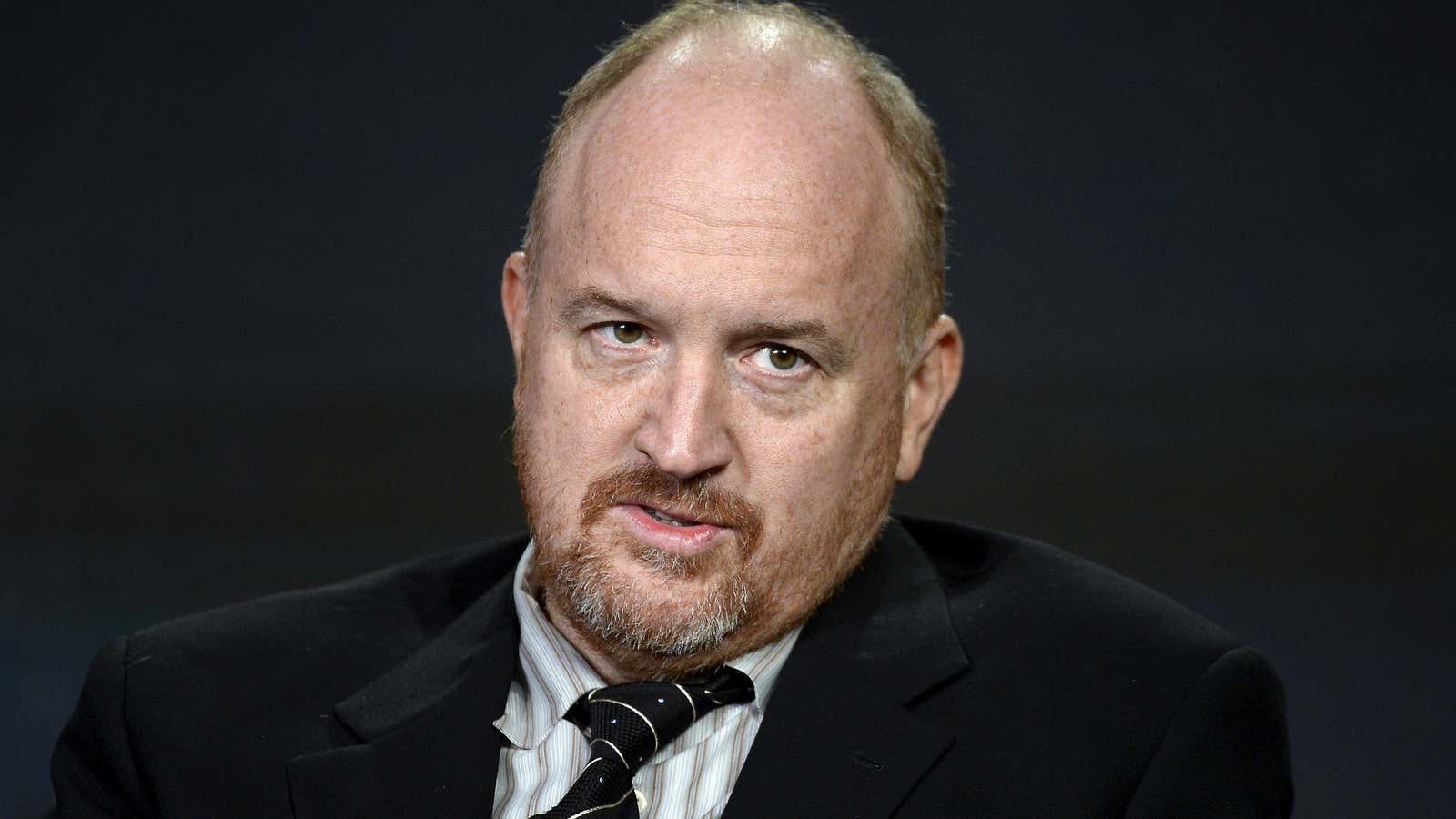Louis C.K. dared to try something different, and now he’s paying the price—literally. The American comedian said he’s now “millions of dollars in debt” after deciding to finance his own TV show instead of pitching it to a network.
In January, subscribers to C.K.’s mailing list received a surprise in their inboxes: The comedian had created his own web series called Horace and Pete, starring himself (Horace) and Steve Buscemi (Pete) as co-owners of a Brooklyn Bar. The first episode cost $5 to watch; the second $2; and the remaining eight $3 each for a total of $31 for the full season. By comparison, subscriptions to Netflix ($10) and HBO ($15) are significantly cheaper and give you a lot more entertainment options than a single show.
In a letter on his website, the ribald C.K. explained his reasoning for the pricing:
So why the dirty fuckballs did I charge you five dollars for Horace and Pete, where most TV shows you buy online are 3 dollars or less? Well, the dirty unmovable fact is that this show is fucking expensive.
The standup specials are much more containable. It’s one guy on a stage in a theater and in most cases, the cost of the tickets that the live audience paid, was enough to finance the filming.
But Horace and Pete is a full on TV production with four broadcast cameras, two beautiful sets and a state of the art control room and a very talented and skilled crew and a hall-of-fame cast. Every second the cameras are rolling, money is shooting out of my asshole like your mother’s worst diarrhea. (Yes there are less upsetting metaphors I could be using but I just think that one is the sharpest and most concise). Basically this is a hand-made, one guy paid for it version of a thing that is usually made by a giant corporation.
Now, I’m not complaining about this at all. I’m just telling you the facts. I charged five dollars because I need to recoup some of the cost in order for us to stay in production.
While the show was expensive to produce, financing it himself allowed C.K. to exercise his creative freedom without impediment from any overbearing network. He could also distribute it however he pleased—in this case, directly on his website where fans could access it easily.
The theory was that the money C.K. made on the first four episodes would finance the production for the rest. It didn’t go according to plan.
C.K. told radio host Howard Stern that he spent $2 million of his own money to make those first four episodes, but they didn’t make nearly enough to bankroll the rest of the season. C.K. had to take out a line of credit, putting himself millions of dollars in the hole.
“I got so excited by the idea of having a show appear from nothing,” C.K. said, referring to his decision not to promote the show whatsoever, like dropping a surprise album Beyonce-style. Listen to C.K. talk to Stern here:
C.K. said that now he’s going to promote Horace and Pete (perhaps he figured news of his financial troubles might drum up headlines about the show), and has even submitted it for Emmy consideration. He thinks he’ll be able to pay off his debt by the summer, and then he may explore selling it to a TV network like, for instance, FX, where his acclaimed show Louie, now on extended hiatus, was on air for five years. Horace and Pete, for what it’s worth, is adored by critics, even as few people are aware that it exists.
The comedian, who’s known for his frankness, admitted that this probably wasn’t a sound business decision. But he didn’t want to sacrifice his vision for the show. Had he gone to a network like FX or a streaming service like Netflix, as most creators do, he would have had an easier time financing the series—but he likely wouldn’t have been able to do exactly what he wanted in terms of casting, production, and especially distribution.
“As a TV watcher I’m always delighted when I can see a thing without knowing anything about it because of the promotion,” the comedian wrote on his website. “So making this show and just posting it out of the blue gave me the rare opportunity to give you that experience of discovery.”
Experimenting outside the traditional TV ecosystem is, to say the least, financially risky. C.K. benefited from his name recognition—a more obscure artist would have sold even fewer episodes than he did. This tweet from New York Times TV critic James Poniewozik just about sums up the situation:
